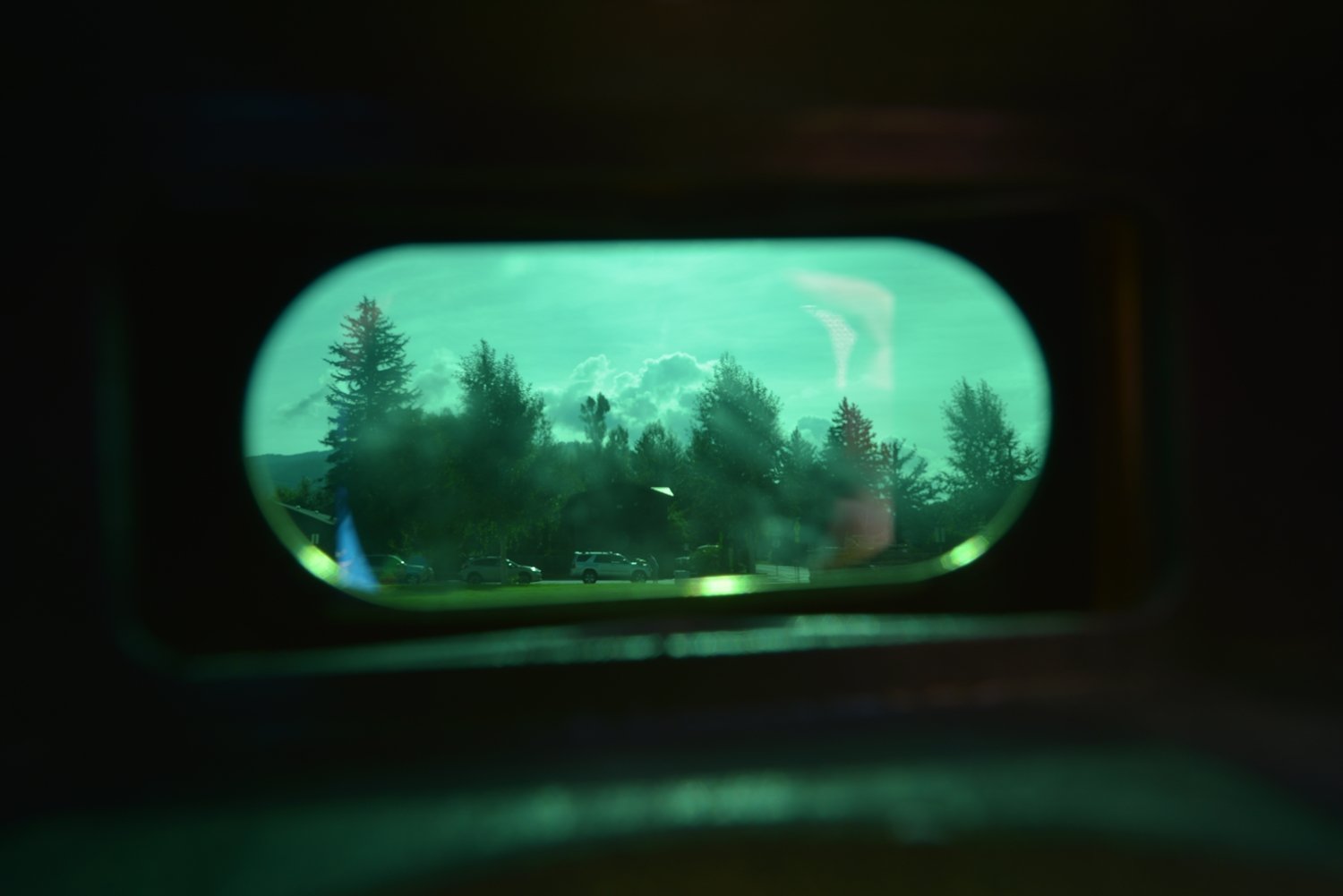
Do you already have the post-eclipse blues? You can relive the once-every-38-year experience at an exhibition in Jackson Hole, Wyoming, which opens fully to the public tomorrow. Artist Matthew Day Jackson, art consultant Camille Obering, and local gallerist Andy Kincaid have teamed up to present site-specific works inspired by America’s first total solar eclipse since 1977.
The show, which includes installations by Liz Magic Laser, Paul McCarthy, and Glenn Kaino, has been in the works for more than a year, and over the past few weeks has been erected in stages, just as the arc of the eclipse has descended over the country. It will be fully installed on August 22.
The projects are housed in a variety of strange and surreal spaces. Laser has commandeered a school bus to screen her video, Thought Leader, in which she directed a 10-year-old artist to give a TED talk on Fyodor Dostoevsky. The artist Eduardo Navarro has erected a telephone booth and invites visitors to dial 1-866-WYECLIPSE to hear a recording of Matthew Day Jackson’s grandfather reciting a poem. McCarthy, who has spent many summers in Jackson Hole, will present a stagecoach from an in-progress, yet-to-be-released Western film.
The exterior and interior of Anna Tsouhlarakis’s installation (2017) at “Observatories” Courtesy of the artist.
The Greek and Native American artist Anna Tsouhlarakis, meanwhile, has created a spiral-shaped construction out of aluminum signage and reclaimed wood from her family’s land on a Navajo reservation. In the Navajo tribe, witnessing the eclipse is forbidden, so this ersatz shelter doubles as a protective bunker.
Housed on the grounds of Jackson Hole’s Center for the Arts, the show was originally conceived as the first—and potentially, only—”Eclipsennial,” though the title was later changed to “Observatories.” The three curators developed the project as participants in the inaugural Center for the Arts Creatives in Residence program.
The trio told artnet News that they envision this show as a comment on more than just the Great American Total Solar Eclipse—it also offers a much broader message about sustainability and accessibility.
Flanked by two mountain ranges and boasting three ski resorts, Jackson Hole is a prime tourist destination—sometimes to the detriment of locals, who feel edged out by the seasonal vacation-goers. The fact that Jackson Hole sits directly in the eclipse’s “path of totality,” making it one of the best spots to view the event, has led to an even more extreme tourist influx than usual. (Some estimated the number of visitors to the state could equal Wyoming’s entire population.)
“The way the West—and Jackson Hole—is portrayed as a ‘cowboy village’ and a tourist attraction—hiding beneath that is the violence, and the hardship of Western expansion,” Obering said. “We’re taking these tropes, and offering new perspectives, using the eclipse as a metaphor.”
The commercial fervor that has surrounded the eclipse is another point of contention for the organizers. “It has this produced, theatrical veneer that is hiding a much (literally) darker subtext,” Matthew Day Jackson said. (Indeed, local airports have reported record numbers of private jets near Jackson Hole ahead of the event.) The artist hopes the exhibition, like the eclipse, will allow visitors “to see the world in a new light.”
The Center for the Arts aims to make the outdoor exhibition an annual event. But to get your fill of eclipse art, you should go before the summer ends. There will not be another total solar eclipse in the US until 2024.
“Observatories” is on view at the Center for the Arts, Jackson Hole, 240 S. Glenwood Street, from August 22 through the end of the season. The opening reception will take place at 5 p.m. on August 22.
The exterior of Glenn Kaino’s Hollow Earth (2017), from “Observatories” in Jackson Hole. Courtesy of the artist.
The interior of Glenn Kaino’s Hollow Earth (2017), from “Observatories” in Jackson Hole. Courtesy of the artist.
Installation view of Liz Magic Laser’s Thought Leader (2017). Courtesy of the artist.
Sarah Braman’s Hello (2017). Courtesy of the artist.